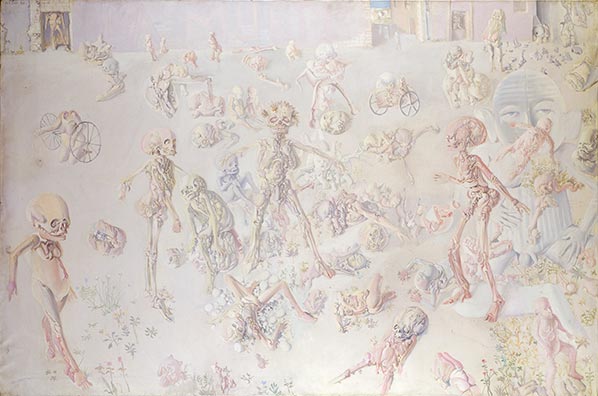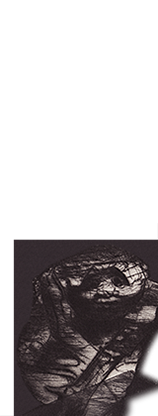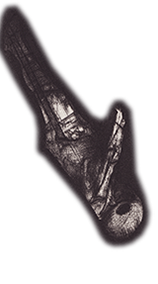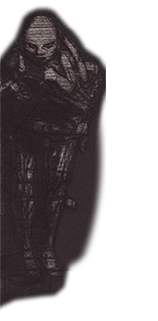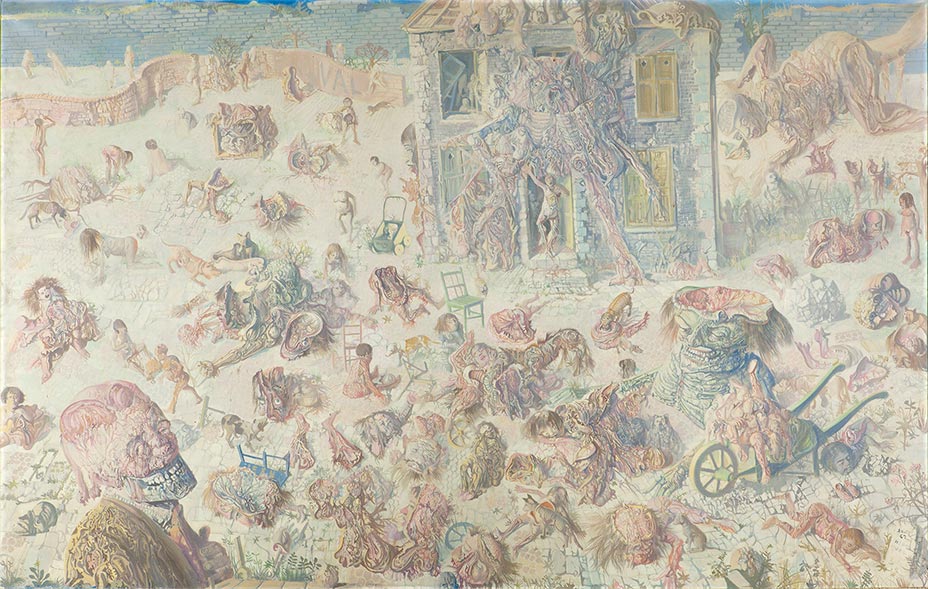Dado by Patrick Waldberg
The present text by Patrick Waldberg comes from the catalog for the Dado exhibition at the Galerie André François Petit (Paris) in 1967.
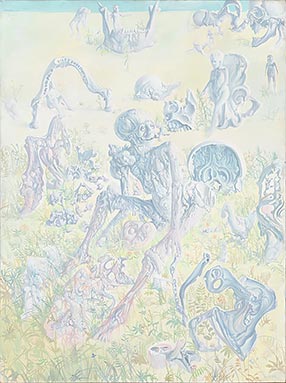
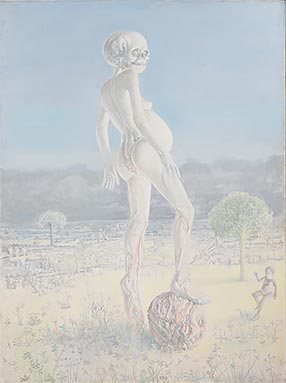
Novica Jovović collection. Photo: Lazar Pejović.
Right: La Muerte, 1966, oil on canvas, 130 × 97 cm. Novica Jovović collection. Photo: Lazar Pejović.
Click on the images to enlarge them
(large and extra large sizes)
❧
Fullscreen
slideshow
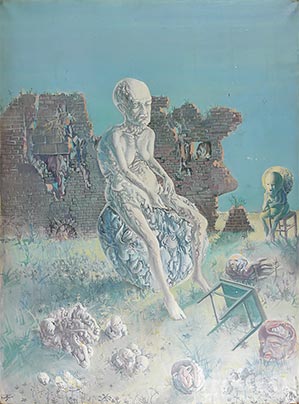
Are we on the Island of Doctor Moreau? Or in one of Lovecraft’s bad dreams, in which creatures are thrown into panic, gnawed at by a color that plummets from the sky? Among half-ruined, haunted houses, the ineffable spawn of a horrific wonderland proliferate and frolic about. Sarabands of the flayed drape themselves in their entrails; skulls still yawning, the trepanned meet to conspire; gigantic babies afflicted with exophtalmia swap saliva as blepharitic old men absent-mindedly look on; hideous couplings of cripples and gnomes – the entire open-air amphitheater makes one think of a monumental tripe shop, where the offal, by the effect of some enchantment, has come back to life and started to pullulate.
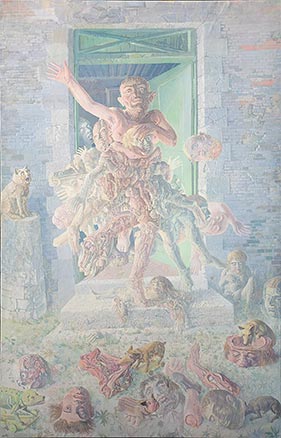
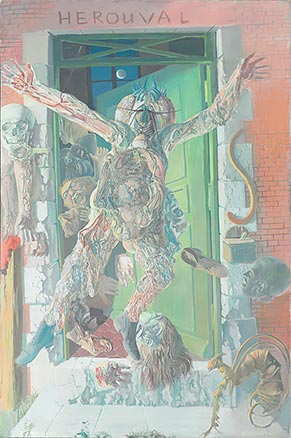
Right: Fly-Headed Man, 1967, oil on canvas, 195 × 130 cm.
Words, in their opacity, are crueler than images: if they depict the contents of these monstrous, at once realistic and phantasmatic compositions, with exactitude, they cannot render the ambivalent impression one experiences looking at them. For, through a sort of magic spell peculiar to Dado, he leads us from intolerable violence to exquisite gentleness, from an unspeakable mass-grave to a blooming garden, from Gothic novel to homely tale. Conjured up in the pastel shades of an ideal herbarium, mutilations, gaping wounds, trepans, laparotomies display the mirage of their pain. In the equivocation maintained by this balancing act of an art, one can no longer discern what is screaming and groaning from what is exulting and singing.
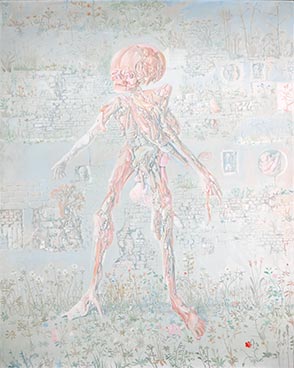
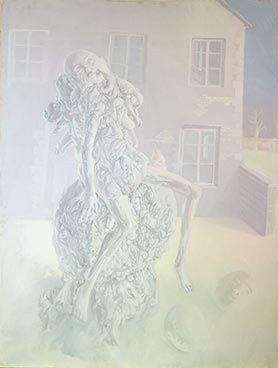
Right: Untitled, 1966, oil on canvas, 130 × 97 cm.
Under our splendid sky traversed by so many shadows, Dado, in guileless exaltation, recounts the tremor and fear that grip him at the premonition of some millenary year when the fragile human envelope will be split open, prized apart, and obliterated in some apocalyptic sacrifice. And yet, in the midst of the massacre, he lends an ear to the brook dreaming within him. With Dado, however weak the smile, however tenuous the safety-net of life, here they blend with an auroral and triumphant gleam in the heart of the distress, the black phantoms of our fears.
Patrick Waldberg
Translated from French by D. Radzinowicz
